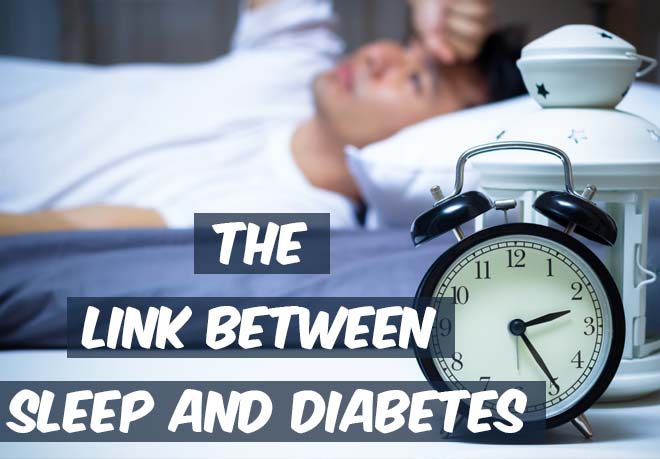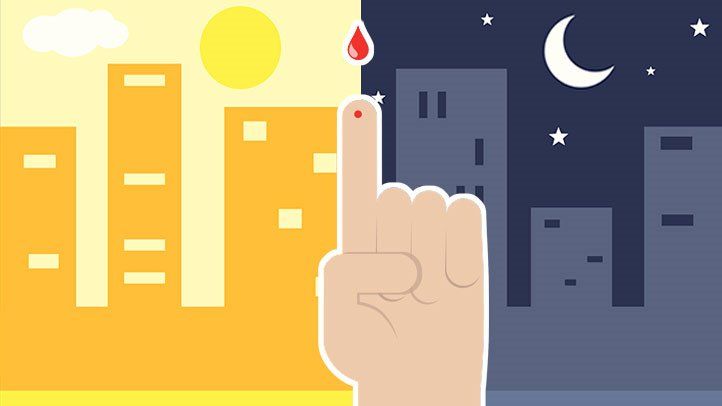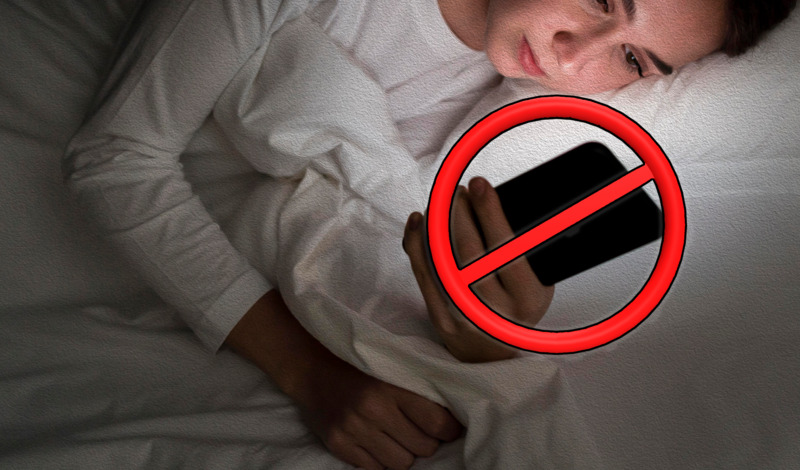
Sleep is vital for the regulation of many bodily functions that are related to metabolism. This results in substantial evidence to suggest that sleeping habits and disorders that are related to sleep can be directly related to diabetes. Specifically, insufficient sleep duration, abnormal sleeping patterns, and sleep disorders such as insomnia can all be associated with the risk of diabetes.

Many studies have been conducted that indicate a direct relationship between sleep and diabetes. “There is some evidence that sleep deprivation could lead to a pre-diabetic state,” states Mark Mahowald, MD, director of the Minnesota Regional Sleep Disorders Center in Hennepin County. Sleep disturbances and abnormalities are common among individuals with diabetes. People with diabetes report higher rates of insomnia, poor sleep quality, excessive daytime sleepiness, and higher use of sleeping medications.
According to research, insufficient sleep can be recognized as one of the most important public health problems. Sleep is vital for cardiometabolic outcomes and processes, which can be related to weight gain, obesity, diabetes, cardiovascular disease, and stress. Sleep can affect and have an impact on the blood sugar levels in the human body.
How does Diabetes Affect your Sleep?
Many researchers have established a strong correlation between sleep disturbance and diabetes. Sleep disturbances include difficulty falling asleep or having the proper amount of sleep and abnormalities during sleeping. Not every diabetic patient experiences sleeping problems; however, it can be one of the symptoms for most patients.
How does Lack of Sleep Affect Diabetes?
Research suggests that lack of sleep with altered and compromised hormone balance can affect food intake and weight. It is common for people with diabetes to compensate for the lack of sleep by eating an excessive amount of food to gain energy.
A study conducted by the University of Chicago shows a lack of sleep can make a person feel fatigued and weak, and to gain energy, the person might engage in overeating habits to compensate for the lack of energy. High levels of stress can cause a rise in blood sugar levels. Lack of sleep can result in a constantly heightened state of alertness, causing rapid, anxious, and troublesome thoughts. Thus, inadequate sleep can then cause further stress. When the person is stressed, the body prepares itself in such a way that a surplus amount of sugar and glucose is available for the flight response. This results in a fall in insulin levels while the levels of epinephrine rise. This leads to an increase in glucose levels in the bloodstream.

Some of the Factors Affecting Sleep are
Frequent Urination
High blood sugar levels can result in frequent urination. This results in the individual frequently getting up to use the bathroom during his or her sleeping hours. This can cause disturbance in their sleeping hours and make them uncomfortable.
Dehydration
This can result in making the individual feel dehydrated and prompting them to get up for regular glasses of water, which might also disturb their sleeping duration. In people with diabetes, excess glucose builds up in the blood. The kidneys are then forced to work overtime to filter out and absorb the excess glucose. When the kidneys can't keep up, the excess glucose is excreted through the urine, dragging along fluids from the tissues, which makes the person feel dehydrated. This can affect the sleeping quality as the person will be compelled to wake up and reach out for a glass of water.
Shakiness, Dizziness, and Sweating
Abnormal blood sugar levels such as shakiness, dizziness, and sweating can also affect the quality of sleep as it can disrupt their sleeping hours.
Sleep Disorders Linked with Diabetes
Poor sleep quality is common in people with diabetes. This could be a result of common diabetic symptoms, or a separate medical condition can also be the root of the problem. There are, however, few sleep disorders that are commonly found in people with diabetes or in people who are at risk of diabetes.

Sleep Apnea
This can be considered one of the most common sleep disorders that are found in people with diabetes. In this disorder, the breathing of the individual repeatedly stops and starts throughout the night when the individual is sleeping. In type 2 diabetes, individuals often have excess weight, which results in constriction of their air passages, which makes it difficult for them to breathe. Literature suggests that 86% of the population who suffers from diabetes has sleep apnea.
Insomnia
This sleeping disorder is characterized by trouble falling asleep and staying asleep. This occurs in diabetic patients as they have high glucose levels, which result in high stress levels, making it difficult to fall asleep. When an individual experiences high levels of stress, it naturally causes sleeping troubles and disturbances. Seeking treatment with a doctor can help in determining what is triggering the problem and how to solve the problem of insomnia. Stress has many negative connotations, but it is a response that has evolved in humans and animals to allow them to deal with important or dangerous situations. In humans, stress can cause the Autonomic Nervous System (ANS) to release hormones such as adrenaline and cortisol. These hormones raise the heart rate to circulate blood to vital organs and muscles more efficiently, preparing the body to take immediate action if necessary.
Tips on Improving Quality of Sleep
Avoid Electronics
Avoiding electronic devices before sleeping can improve sleep quality. Circadian rhythms are physical, mental, and behavioral changes that follow a 24-hour cycle. These natural processes respond primarily to light and dark and affect most living things, including animals, plants, and microbes. The light emitted by the electronics can confuse our biological clocks and disturb the circadian rhythm.

The 2011 Sleep in America Poll from the National Sleep Foundation suggests that the sounds from electronic devices can cause unwanted awakenings when a person is sleeping next to electronics. The blue light that is emitted by many devices disturbs the natural production of melatonin. Melatonin is a hormone that facilitates sleep and can throw off your circadian rhythm.
The removal of distractions is crucial for having a good night's sleep. Putting one phone in do-not-disturb mode or silent mode can guarantee disturbance-free sleep throughout the assigned sleeping hours.
Stress Management
It was mentioned earlier that sleep can be disturbed by high-stress levels. Getting social support, managing stress-provoking thoughts, and managing diet and exercise can reduce the levels of stress, which can eventually improve sleep quality.
Avoid Alcohol
It is suggested that people should avoid alcohol intake before bedtime, as they are less likely to stay asleep for the full eight hours. This is because alcohol dehydrates the body, and the individual might have to get up to drink water and hydrate themselves. People should try to monitor their alcohol intake. While moderate amounts of alcohol may cause blood sugar to rise, excess alcohol can decrease your blood sugar level, sometimes causing it to drop to dangerous levels, especially for people with type 1 diabetes.”

Avoid Caffeinated Beverages
Caffeine can cause a burst of energy as it stimulates the central nervous system. Most people drink coffee in the morning to help them wake up, but caffeine consumed at night can cause more harm than good. While caffeine can boost cognitive functions in the severely fatigued, it cannot permanently ward off sleep or fix the effects of long-term sleep deprivation. Though caffeine can marginally boost performance, it is no substitute for a restful, restorative night of sleep.
Have a Comfortable Environment
Creating an environment that is suited for sleep is very important for a good quality of sleep. A comfortable and pleasing environment can contribute to getting a good night's sleep. Investing in a new soft mattress, having a comfortable temperature, wearing comfortable clothes, and eating food before bedtime can contribute to a better quality of sleep.

Eat Real Food
A high-protein snack before bed may help people with diabetes stabilize their blood sugar levels overnight. In general, eating foods rich in healthy fats, high levels of proteins, and limited carbohydrates may help limit blood glucose spikes during the night and ensure lower blood glucose levels in the morning.
Conclusion
From the aforementioned points addressed in the article, it is understood that sleep plays a vital role in the management of diabetes. Sleep is directly linked to many health issues in today’s generation, and efforts directed at improving the quality of sleep can help in the management of diabetes. Avoiding the use of electronics before sleep, managing stress levels, and eating healthy food can improve sleep quality and overall health.


.png)


